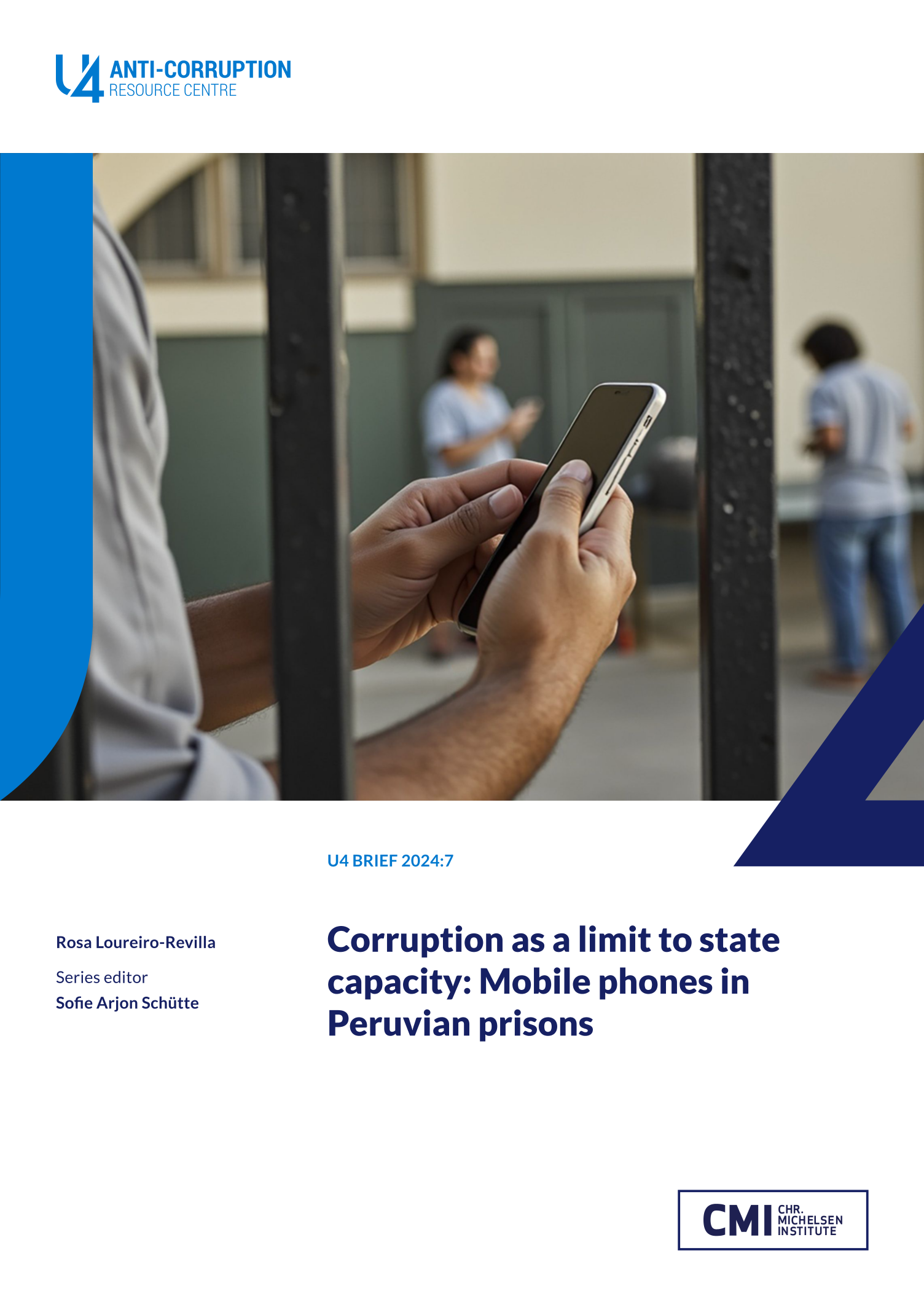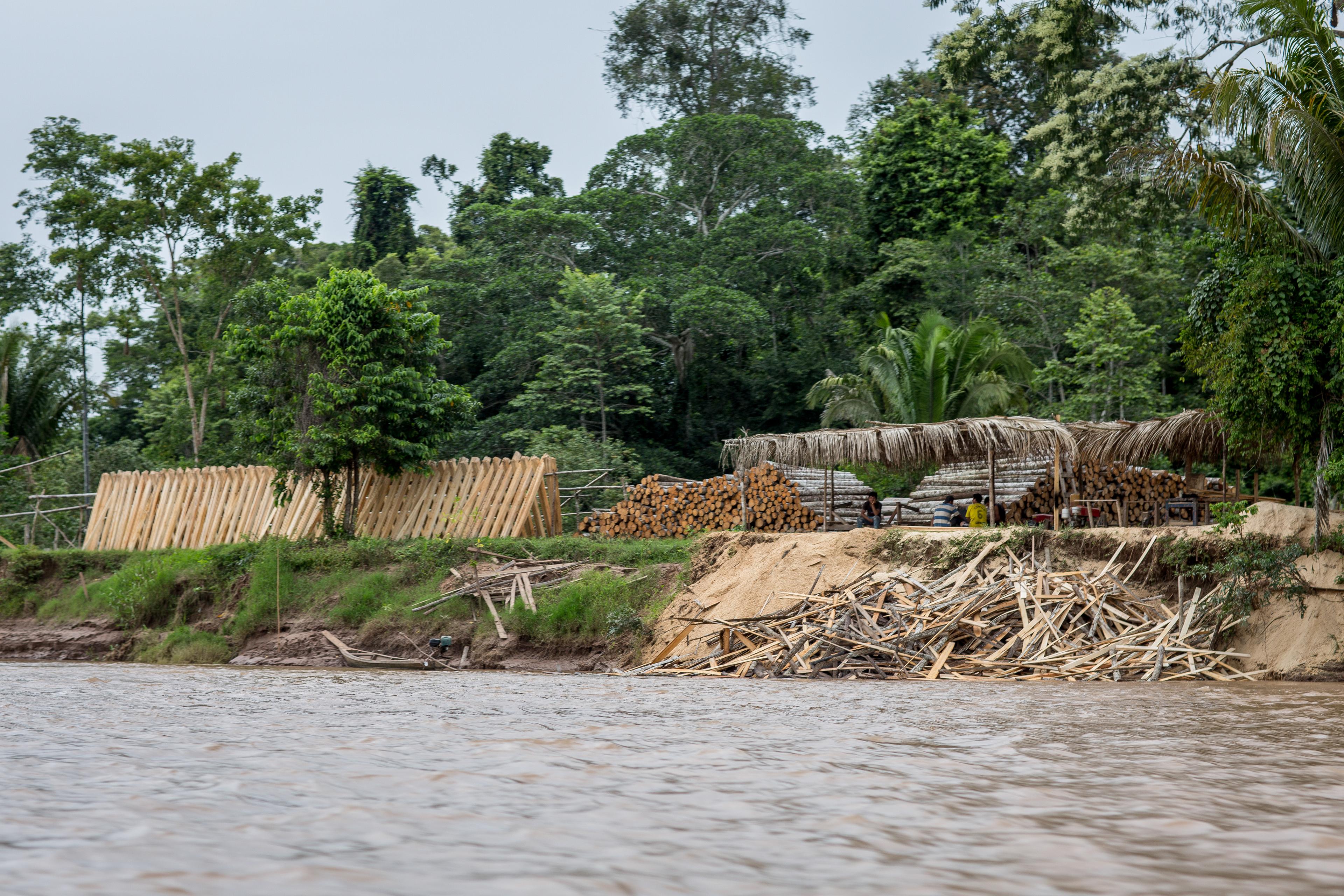Main points
- Latin America and the Caribbean experience high rates of violence and crime due to factors such as poor governance, inequality, criminal organisations, and corruption. High crime rates along with government crackdowns have led to prison overcrowding and to significant social and economic costs.
- In Peru, overcrowding, insufficient resources, poor infrastructure, lack of a comprehensive penitentiary policy, and corruption are key challenges that undermine the state’s capacity to maintain control over its prisons.
- Mobile phones are smuggled into Peruvian prisons in various ways. Overcrowding and corruption hinder enforcement of existing policies that prohibit inmates’ possession and use of phones.
- Current anti-corruption measures in Peru rely on appealing to values, suggesting a need for more context-specific, dissuasive sanctions that can reduce corruption opportunities. Improved processes, up-to-date technology, and better-trained staff are needed to tackle corruption effectively in the prison environment.
- Policy reforms should prioritise investment in the prison sector, provide a comprehensive penitentiary policy that includes effective anti-corruption tools, and explore alternatives to incarceration for minor non-violent crimes.



